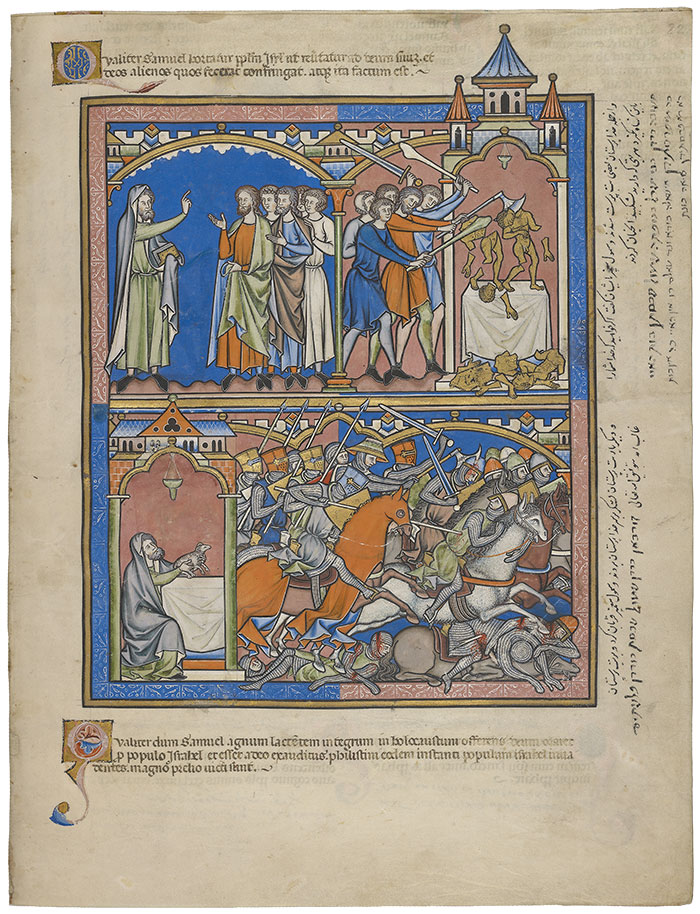
Repentance, Samuel's Sacrifice Assures Victory
Old Testament Miniatures with Latin, Persian, and Judeo-Persian inscriptions
Purchased by J.P. Morgan (1867–1943) in 1916
Repentance
For more than twenty years, the Israelites have suffered under the Philistines, so Samuel (holding a golden book as a sign of his authority and wisdom) advises the people to put away strange gods and turn wholeheartedly to the Lord. The repentant Israelites heed Samuel's words and smash the idols of the gods Baal and Ashtoreth. (1 Kings 7:3–6)
Samuel's Sacrifice Assures Victory
Samuel offers a sacrifice to the Lord for the salvation of Israel from the Philistines. The Lord hears this prayer and grants the Israelites victory. The terrified Philistines must retreat over the corpses of their fellows or be cut down by the pursuing Israelites. (1 Kings 7:7–11)
Folio 22r (Latin)
Upper half: How Samuel encourages the people of Israel to return to their God and to destroy the strange gods which they had made, and so they did. (I Samuel 7: 3–4)
Lower half: How, when Samuel, offering a whole suckling lamb for a holocaust, was praying for the people of Israel and was heard by God, at that very moment, the Philistines who were invading Israel, were defeated in a great battle. (I Samuel 7:10)
Folio 22r (Persian)
Upper right margin: Some of the company of the believers became idolaters and the prophet Samuel said to them, "If you want not God to exhort you for this sin, break whatever idols you have." They so did.
Lower right margin: And once again the idolaters brought armies against the believers and the prophet Samuel offered sacrifices and defeated the idolaters, by the grace of God the Exalted.
Folio 22r (Judeo-Persian)
Upper right margin, furthest right: The repentance of the Children of Israel upon Samuel’s exhortation, their breaking of the idols which they had worshipped, [saying], "Exalted Lord of the Universe, behold these who have worshipped idols and have shamed You."
Lower right margin, furthest right: [While] Samuel offers a sacrifice, the Philistines are defeated.
Italicized words are in Hebrew.
Content consultant: Richard Leson
Persian translated by Sussan Babaie
Judeo-Persian translated by Vera Basch Moreen
Latin translation by Eran Lupu
After the commentary volume accompanying the Fine Art Facsimile edition by Faksimile Verlag Luzern
